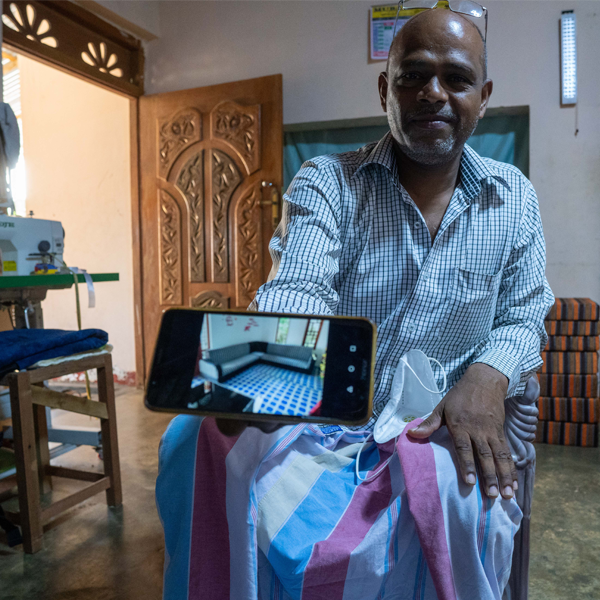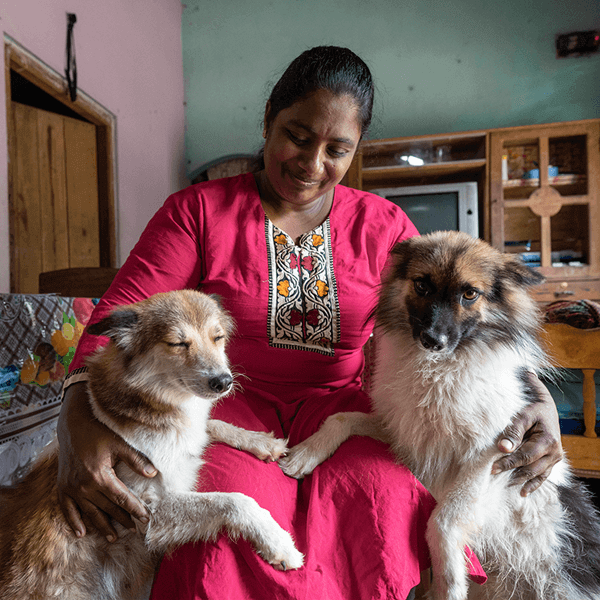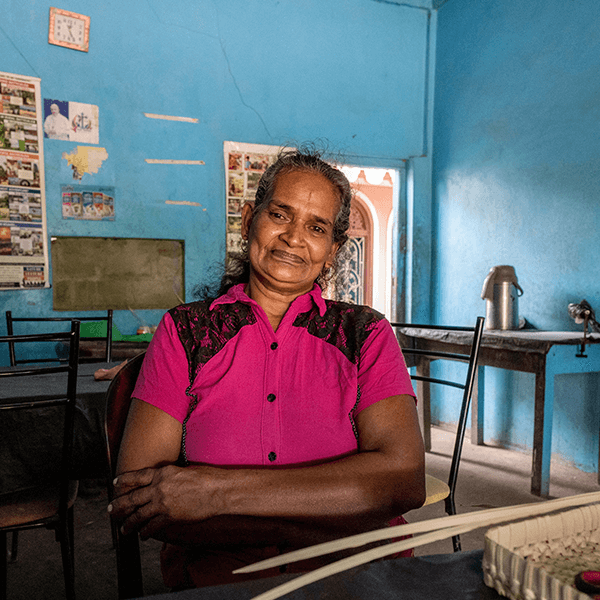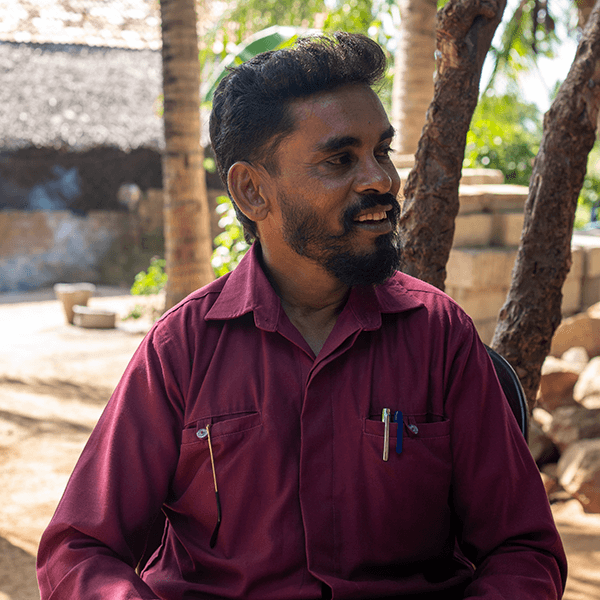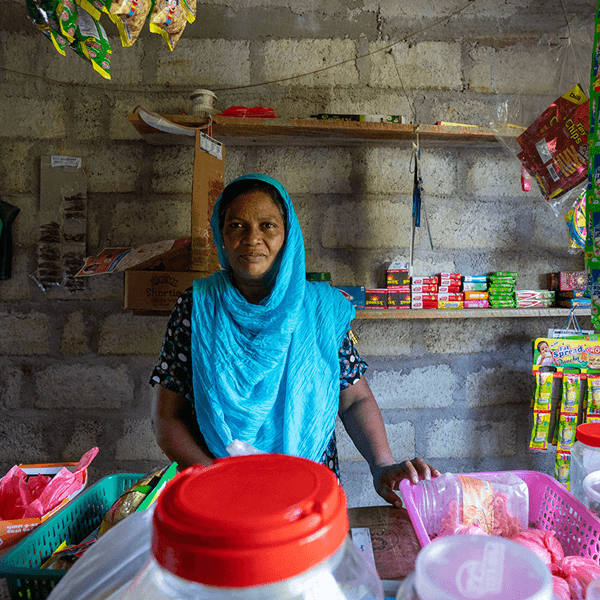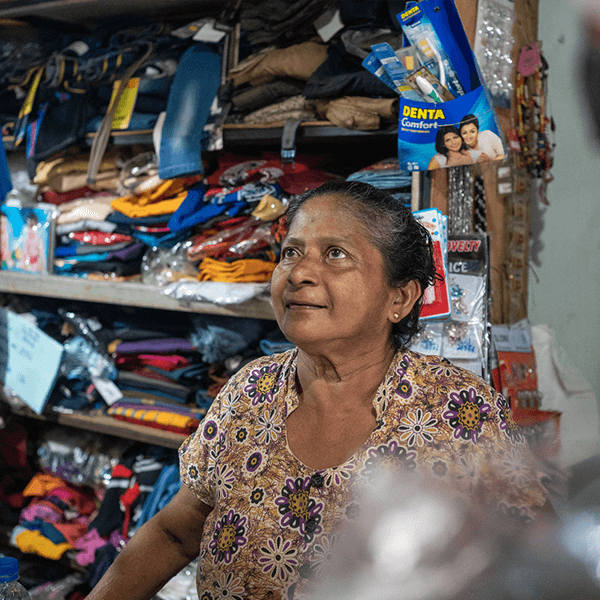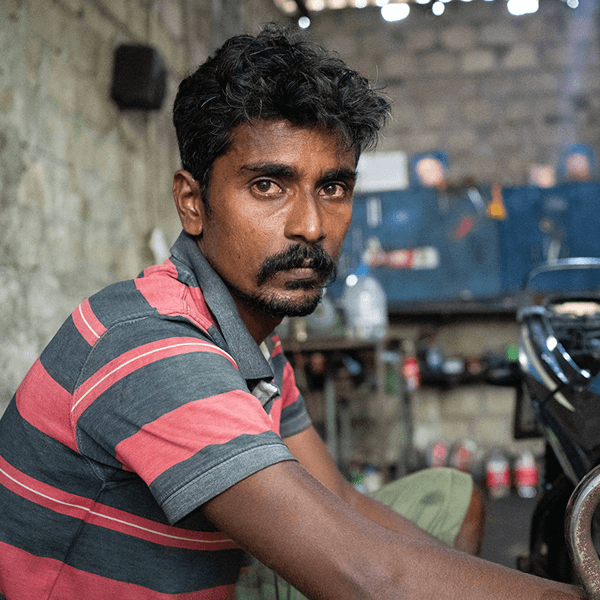Promoting Inclusivity through Economic Engagement Stories from the Eastern Province of Sri Lanka
A Photo-Essay by Abdul Halik Azeez
This photo essay by Abdul Halik Azeez was commissioned to capture the evolution, successes and lessons learned through the activities and outcomes of the project. Most importantly, it also attempts to capture the nexus between social cohesion and economic development fostered through the project, upon the personal, collective and professional growth of the project’s participants.
Background
In the war-affected Northern and Eastern areas of Sri Lanka, many historic inter-ethnic bonds have broken down, leaving these communities vulnerable to renewed forms of ethnic tension.
While economic activity has traditionally been a bridge between people of different class, ethnic and religious groups, the vagaries of the conflict have reduced these bonds to a minimum. Communities lack the resources, training and support to establish resilient livelihoods at the grassroot level which can translate into business relationships among people of different ethnicities, fostering co-dependency and co-existence
Inter-ethnic engagement through the economic domain has proven effective in many countries since it leverages a natural motivation to improve livelihoods. Such engagement also promotes shared space that fosters interdependence and generates tangible outcomes for the participants. The Asia Foundation (TAF) in Sri Lanka works to promote inter-community dialogue through economic engagement.
In Sri Lanka, the Initiative for Sustained Peaceful Inter-ethnic Relations for Economic Development (INSPIRED) project, funded by The Asia Foundation, aims to promote social cohesion through inter-community engagement in the business sector. The project focuses on the Eastern Province and is implemented with the support of local partners: Group Action for Social Order (GAFSO), Eastern Self-Reliant Community Awakening Organisation (ESCO), Sarvodaya, the Federation of Sri Lankan Local Government Authorities (FSLGA), and Good Market. It is based on the premise that if all communities involved in the formal and informal economy in the Eastern Province are supported to interact collaboratively around common economic interests, and the resulting benefits are inclusive and available equally to all, then inter-community relations at the community level will also improve.
The INSPIRED project, addressed the potential for improving inter-community relations through economic engagement by working closely with communities involved in the formal and informal sectors in the Eastern Province. By supporting all communities in an inclusive manner and making resources available to all, the sought to create strong incentives for improving inter-ethnic relations at the community level. The project conducted a series of dialogue sessions among project beneficiaries and disbursed 92 seed grants for a total of 178 micro, small and medium enterprise owners (MSMEs) to support business ideas that promote and strengthen inter-community collaboration through the production cycle and/or value chain. Attendees were given rigorous training in business practices and processes including in accounting skills and the importance of planning. In September 2020, TAF organized a series of trade fairs that helped put the participants’ skills into practice. At the primary level of the individual, various other changes and impacts have taken place. These are often unpredictable and constitute unexpected benefits in the potential of an initiative such as this. The aim of this series of stories is to highlight a few of these aspects, told through the journeys of individuals who participated and prospered through the aid of INSPIRED.
The Foundation also conducted a series of Public-Private Dialogues in each of the project sites with project beneficiaries, local authorities, divisional secretaries, and provincial-level ministries. These dialogues provided a platform to share inter-community concerns on recent and ongoing issues faced by local businesses and to find constructive and sustainable solutions. As part of its capacity building activities, the Foundation in collaboration with Good Market carried out a series of tailor-made training programs among project participants, across all three districts.

Mastering the Art of Professionalism
Ahamed Lebbe Rizana – Karaithivu, Ampara

Thuwan Aariff Halideen and Halideen Fathumma, Manmunai North, Batticaloa
Abdul Halik Azeez is an interdisciplinary artist, researcher, photographer and journalist. As a journalist he has worked with institutions such as The Sunday Leader, Al Jazeera and CNN. As an artist he is represented by the Saskia Fernando Gallery, Colombo, and has exhibited widely both locally and internationally including the Edinburgh Festival Fringe, Edinburgh (2017), Ishara Foundation, Dubai (2019, 2021) The Asia Art Biennale, Taiwan (2021) and Colomboscope (2015, 2017, 2019 and 2022). He is a founder member of the art collective The Packet which focuses on self publishing and site specific installations mobilized through independent art work. He works extensively with development sector organizations in Sri Lanka, contributing as an artist, video producer, researcher and documentary photographer, helping to highlight the work of the communities they engage with. For more information view his website abdulhalikazeez.com


